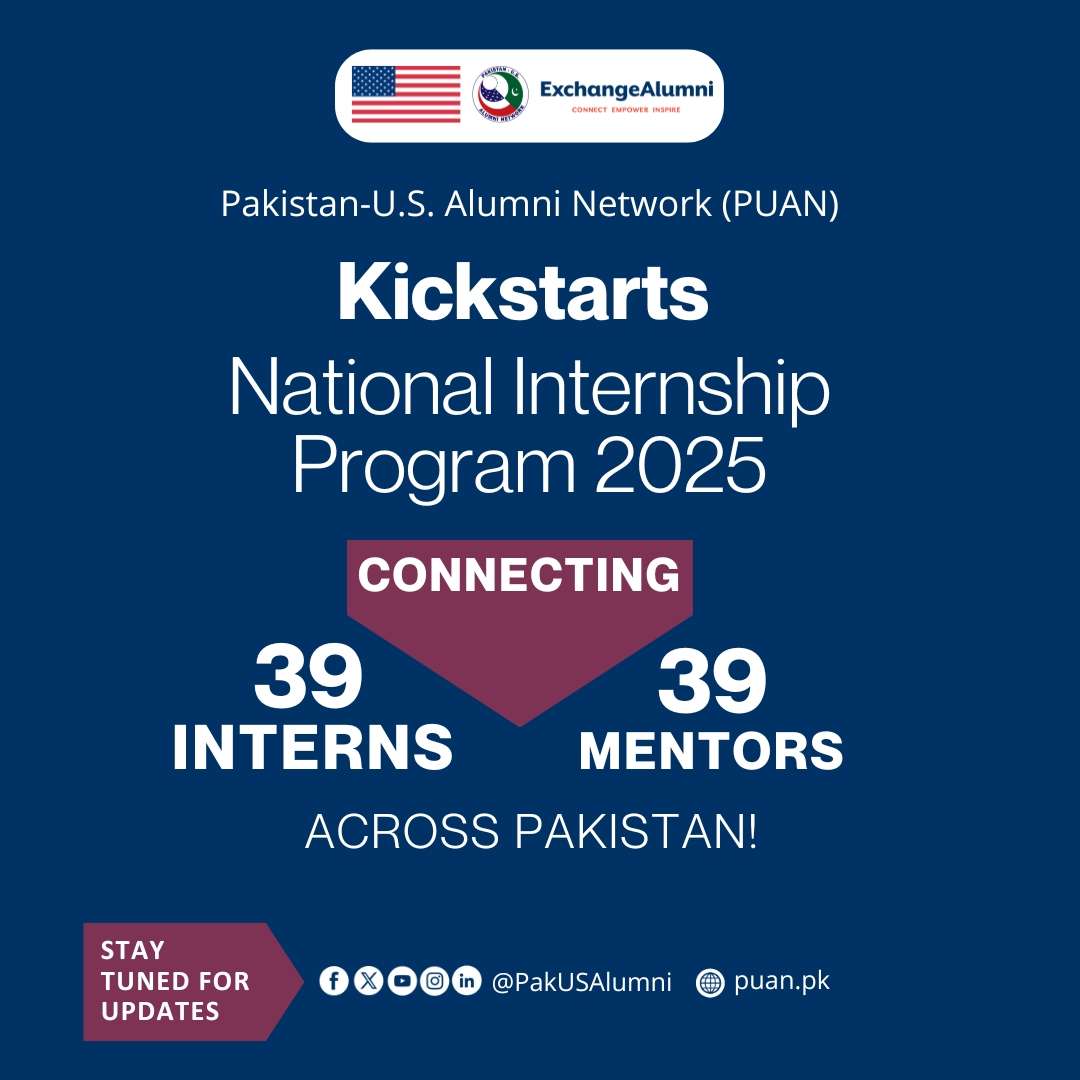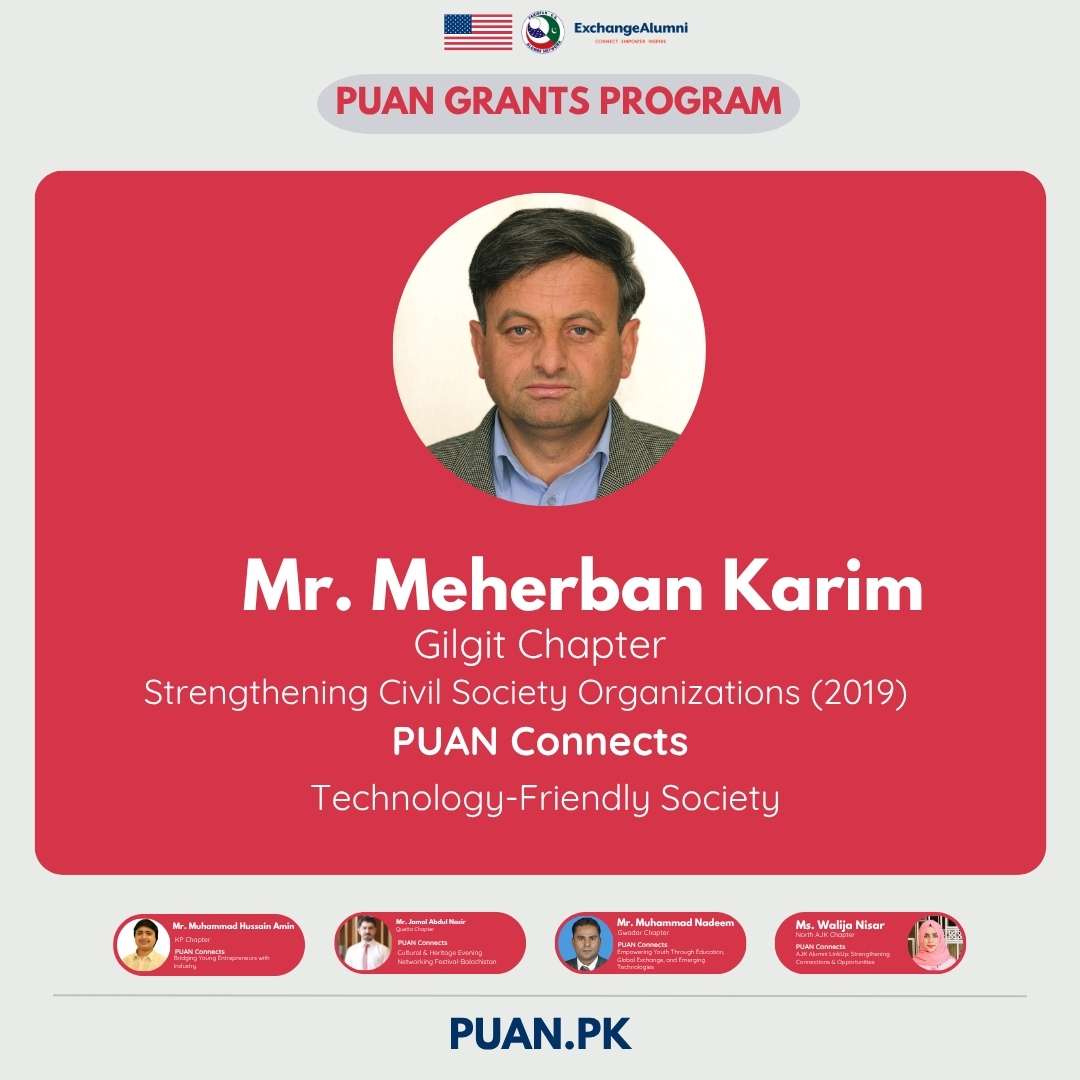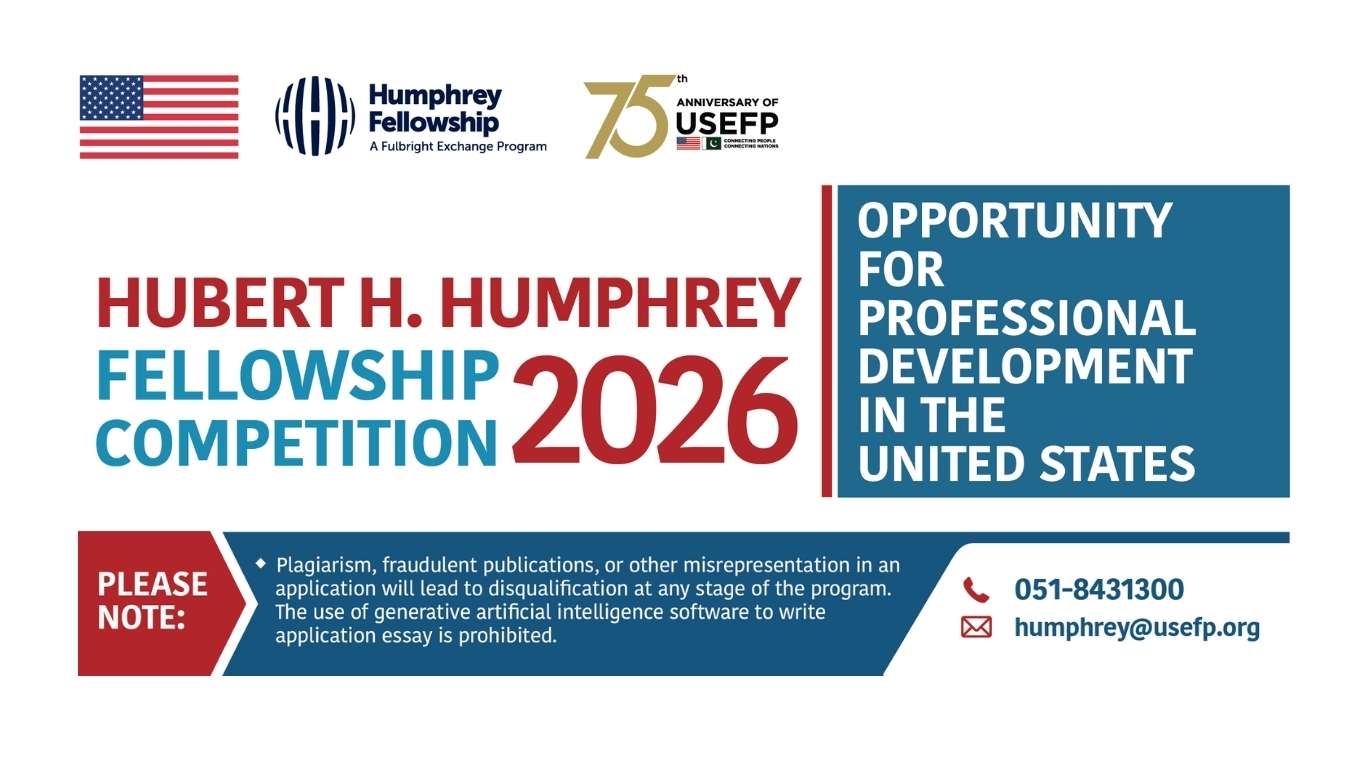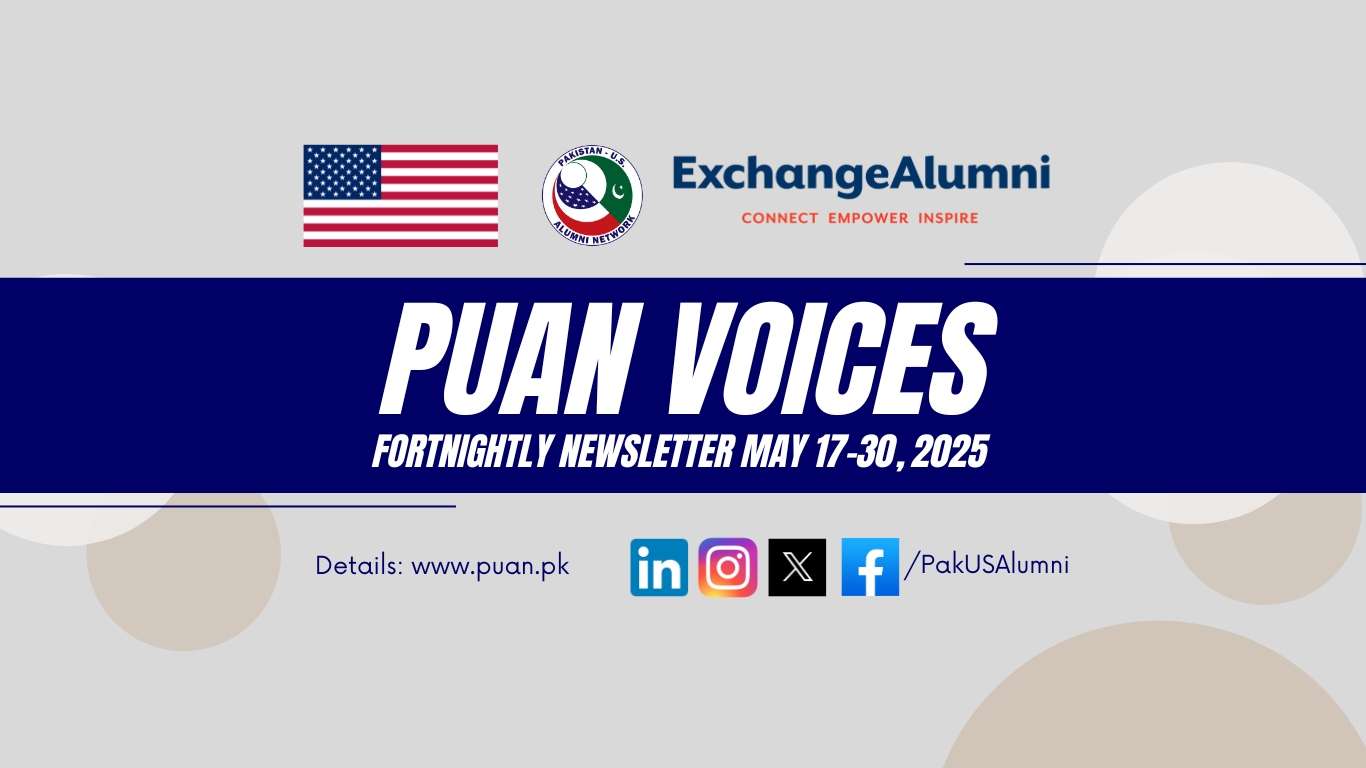By Hira Nafees Shah

Negotiating time off is never easy for a news professional, but for senior journalist Awais Hameed, attendance at the alumni summit in Karachi at the Center for Excellence in Journalism (CEJ) was a “couldn’t miss” opportunity to enhance his media skills.
“I have worked in electronic media for eight years and today was the first time that I have ever held a camera,” he said. “Working as a journalist in Pakistan, I really feel that we don’t invest in research and training of our journalists.”
Awais’ training was part of a unique four-day journalism conference organized by the International Center for Journalists (ICFJ), the newly-established CEJ at the Institute for Business Administration (IBA), and the Pakistan-U.S. Alumni Network (PUAN).
More than 120 journalist alumni of the U.S.-Pakistan Professional Partnership in Journalism (PPJ) attended the event. The PPJ is an initiative of the U.S. Department of State Bureau of Educational and Cultural Affairs (ECA) to allow U.S. and Pakistani journalists to see how each other’s newsrooms function. Since 2011, 13 batches of Pakistani journalists have visited the United States on the PPJ program, with a fourteenth group scheduled to depart later this year.
“The purpose of this ICFJ alumni summit was to bring [together] all journalists under one roof who went on the Journalists Exchange Program to the U.S. in different batches,” said Babar Taimur, Program Director of Pakistan programs at ICFJ. “We also wanted to integrate CEJ as a space for professional training for working journalists.”
The conference was held in Karachi from July 23 to 26. U.S. Consul General Brian Heath delivered the opening remarks and emphasized the role that journalists can play in making the world a better place.
“The U.S. exchange programs in Pakistan are amongst the largest in the world,” he said. “Through [the PPJ], exchange participants work side by side with American journalists and find innovative ways of contributing to Pakistan.”
Training Sessions Draw Praise from Participants
Over the course of four days, each of the nearly 120 participants attended six breakout sessions on a variety of topics, including “Social Media for Journalists,” “Investigative Reporting”, “Multimedia-Interactive Storytelling,” “Journalistic Ethics,” “Digital Security for Journalists,” and “Data Journalism.”
“On social media if you have to choose between being first or being right in breaking a news, always choose right,” said Wajahat Ali, an Al-Jazeera America journalist, during his session on Social Media. “Also ‘sharing is caring’ so make sure to promote others’ good content on social media as well.”
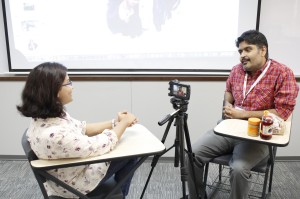
The smaller groups of alumni had an opportunity to participate in each of the six training sessions. “I found the storytelling session very useful because I learned how to tell my story through five different video shots,” said Hasan Raza Zaidi, a reporter from Lahore.
“After attending the data journalism session, I feel I can [better] work with datasets in the future and experiment with the different tools,” said Mohammad Irfan Haider from Dawn Media Group in Islamabad.
“The digital security presentation was very good because before I did not know that secure data can also be transmitted through Wi-Fi,” said Umar Farooq, an Express Tribune Correspondent from Peshawar.
ICFJ Vice President of Programs Patrick Butler used interactive sessions and lectures to make participants tackle difficult ethical situations and practice in-depth reporting.
International Managing Editor at Bloomberg Ethan Bronner delivered the keynote session, and spoke about the upheavals facing the journalism profession, and the way newsmakers should ideally respond.
“You should embrace the democratic nature of journalism,” he said. The summit also featured two panel discussions entitled “Future of News” and “Conflict of Interest.”
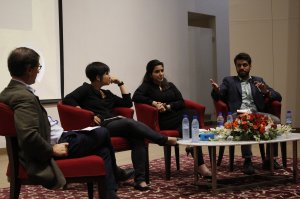
Veteran journalists Badar Alam and Kamal Siddiqui spoke about how print, broadcast, and online news were adapting to the convergence of media forms and how social media has affected the traditional modes of conveying information.
The “Conflicts of Interest” panel drew many comments and questions from the audience, ranging from how to report about friends who turn into sources and how to remain objective and neutral when a journalist has a strong personal opinion about a story.
Towards More Polished Story-telling
During the event, participants also reflected on how the PPJ had opened up new avenues for them and how their impressions of the United States had changed.
“The best thing about the exchange program is that it has a follow-up,” said Dawood Tareen, a filmmaker from Balochistan. “We live in Pakistan but we receive access to the best facilities because of our exchange experience.”
“I became a multimedia journalist after going on my exchange program,” said Samreen Ghauri, a participant from Hyderabad. “Now while living in Pakistan, ICFJ has provided an opportunity for us to interact with international level journalists and learn from them.”
The American journalists were just as affected by their time in Pakistan.
“I got a better understanding of the circumstances in which Pakistani journalists work,” said Lam Vo, an Al-Jazeera America journalist. “It also established a higher bar of respect for them.”
“My trip to Pakistan has made me aware of the privileges that we share in America and it has been a very humbling experience,” said Wajahat Ali, an Al-Jazeera America journalist. “The journalists in Pakistan have to navigate a unique set of challenges.”
The event organizers were just as pleased with the turn-out and success of the summit.
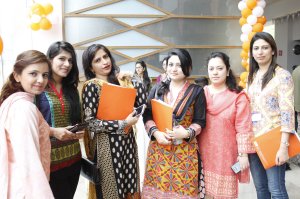
“I am thrilled about the success of the event,” said Christie Marie Lauder, Program Manager at CEJ. “It has been tremendously gratifying and the collaborations with PUAN and others have brought a new sense to what this event could be [and] new ideas to the table.”
Many managers expressed their appreciation to the United States Educational Foundation in Pakistan (USEFP) for selecting high quality Pakistani media personnel to participate in the exchange to America, and looked forward to a continued partnership in order to improve journalism in both countries.
“I have met every single group of journalists here and feel quite energized,” said Patrick Butler. “As for the next step, we would encourage the journalists’ alumni, to apply for PUAN grants and continue to involve them in the CEJ.”
To take a look at the photographs from the event, visit:
https://www.flickr.com/photos/pakusalumni/sets/72157656022811178


